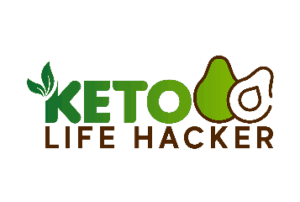When you start following a ketogenic diet, avoiding sugar is usually the first thing you’ll have to start paying more attention to.
While there are a lot of ‘sugar free’ options when it comes to foods and drinks, they might not still all be inherently keto-friendly.
In this article, I’ll be doing a deep dive on agave nectar’s quality and how it stacks up against some of my favorite keto-friendly sugar substitutes.
What Is Agave Nectar?
Agave is a specific type of plant that is native to the southern United States, South America, and Latin America.
It’s generally pretty new in western foods as a sweetener, usually in the form of a highly processed syrup, but it’s been used in regions like Mexico and other parts of Latin America for centuries.
Most people might be familiar with agave as its sugars are often used when fermented in order to make tequila, but it’s often used as an all-purpose sweetener as well.
One of the main reasons that agave is used as a substitute for sugar is because of it’s low glycemic index (GI) value, meaning it has a lower effect on blood sugar levels compared to consuming sugar, which can be great for anyone trying to keep their blood glucose stable, especially people who struggle with diabetes.
Agave nectar’s glycemic index level is around 17, compared to table sugar’s much higher 68. This level is lower because agave doesn’t have any glucose in it, as it’s mostly made up from fructans.
Another reason agave is commonly used as a sugar substitute is because it is generally sweeter than sugar, honey, and other alternative sweeteners. This means that a little goes a much longer way, which can be pretty cost effective for producing sweet goods and drinks in bulk.
The sap or nectar of the agave itself is fairly healthy, and has some natural fiber, but unfortunately most processed versions of this food strip it of all its important dietary fiber and other nutritional benefits.
Benefits of Agave Nectar
-
Low impact on blood sugar
Agave is often touted as a generally better alternative to sugar because of its low impact on our blood glucose levels. It has a glycemic index value of about 11, which means it’s far less likely to cause spikes in your blood sugar levels, which is important to both keto dieters and diabetics.
Agave nectar gets its low glycemic index value because unlike sugar, it has trace amounts of glucose. Instead agave gets its sweetness primarily from fructose.
One recent study exploring this connection observed the metabolic results in mice that were given agave nectar versus mice that were given plain sugar. After a testing period of 34 days, the mice who were consuming agave nectar gained less weight and had lower blood sugar and insulin levels than the ones eating sugar.
Both groups however still did gain weight, so agave is more effective as a sugar replacement for those with high sugar diets, not necessarily as something that should be introduced to an already low-sugar diet.
-
Anti-microbial properties
Agave nectar has been used for centuries in various types of healing because of it’s anti-microbial properties. A lot of this comes from the saponins that are found within agave. Saponins have been known to fight against inflammation within the body, and can help with fighting off bad intestinal bacteria. This anti-microbial properties are part of way ancient civilizations also used agave to treat wounds.
Side Effects of Agave Nectar
-
Dangerously high in fructose
Even though agave has a low glycemic index value compared to sugar, in a lot of ways it’s considered bad for us because of all the fructose it contains to make up for the lack of glucose.
When processed, the fructans in agave nectar end up behaving similarly to corn syrup in our digestive tracts. While it may not spike our blood sugar levels, it definitely has the potential to cause some serious metabolic harm by increasing risk of high blood pressure, cholesterol, stroke, type 2 diabetes, and heart disease.
When fructose is passed through the liver in large quantities, it essentially overloads it, and the fructose will start to be converted into body fat – the exact opposite reaction you’d want to experience from a sugar alternative.
-
Heavily processed with little nutritional value
Because the agave plant doesn’t produce a lot of nectar all at once, in order to turn it into a consumable syrup, agave needs to be heavily processed and extracted, which results in very minimal nutritional value. When consuming processed agave, you won’t get much of the anti-microbial or anti-inflammatory properties, you’ll mostly just get fructose.
Part of the reason there aren’t a whole lot of health benefits of agave is because of how processed it is. With little nutritional value and high levels of fructose, it becomes clear that there’s a lot of more helpful and natural alternative types of sweeteners available, at comparable costs and ranges of sweetness.
-
High in carbohydrates
Worst of all, agave nectar is very high in carbohydrates, with one teaspoon of it containing roughly 6 grams of carbohydrates, and none of those carbs contain fiber! Essentially it’s about a one to one comparison to table sugar, and if you opt for certain types of processed agave syrups you might find that it has even more carbs than it does sugar, because of other additives to help preserve shelf life and boost its sweet flavor.
Is Agave Nectar Keto-Friendly?

Considering it’s high level of both carbohydrates and natural sugars, I think it’s safe to say that agave nectar is not keto-friendly.
Even though it has a low glycemic index value and does tout some anti-inflammatory benefits – two things that most keto dieters try to find in a lot of their foods and alternative sweeteners – the real dealbreaker here is the crazy high levels of fructose that come in agave nectar.
Because agave syrup is heavily processed, you lose out on any potential proteins and fiber that may have helped even this sweetener out among its competitors. However because of the way it’s made, I personally view agave no different than sucrose, or table sugar.
Furthermore, I mentioned above that agave’s high fructose content can contribute to metabolic problems and even stimulate body fat production. This obviously is the antithesis to the keto diet, and it might even be able to knock you out of ketosis faster than ordinary table sugar!
So if agave isn’t a good sugar substitute at all, what can you use for sweetening food on the keto diet?
I’ve broken down some of my favorite keto-friendly alternatives to sugar down below. All of these are low in net carb, generally low in glycemic index, and are pretty easy to find in most stores and online.
Keto-Friendly Substitutes for Agave
-
Sucralose
Sucralose is an artificial sweetener that has no calories or carbohydrates because it’s able to be passed through the body without being digested. It’s most commonly associated as the active ingredient in Splenda. But one big drawback of sucralose is that when it’s heavily processed and sold in packets like splenda, it’s typically combined with sweeteners like maltitol, dextrose, and maltodextrin, which are all generally bad for the keto diet.
Even though sucralose is inherently keto friendly, most products that contain sucralose are likely to spike your blood sugar or increase your net carb amounts, so definitely be careful when choosing it as a sugar substitute.
-
Monk Fruit
If you’ve been following Keto Lifehacker for a while, you’ll know that monk fruit is absolutely my favorite out of all of the keto-friendly alternative sweeteners on the market today.
Monk fruit comes from a natural source, is about 150 to 250 times sweeter than sugar, and comes with zero calories, zero carbs, and little effect on blood glucose levels. As a sweetener, it’s pretty much the safest you could use for keto. The only real drawback is it’s sometimes hard to find, and can occasionally get a little expensive. If you want to learn more about how to get those most out of monk fruit on keto without breaking the bank, you can check out my latest guide here.
-
Stevia
Stevia is another top choice for a lot of keto dieters. Like monk fruit, it comes from a natural source, the leaf of the stevia plant.
It’s considered a fairly healthy sweetener because it’s low calories, low carb, low glycemic index, and actually has been connected to decreasing blood sugar levels in general.
A big plus of stevia is that it’s fairly cheap, and widely available. It can be found online and in most grocery stores, and is starting to become more and more common in drinks and sugar-free packaged goods.
-
Allulose
Allulose is technically categorized as a monosaccharide, which is a rare type of sugar.
As a naturally occurring substance, it tends to be organic, and is usually found in dried fruits such as raisins, figs, and jackfruit, but this only accounts in trace amounts on its own.
When allulose is produced for human consumption, it is typically heavily processed into an extract. It is processed in this way so that it can be used as an effective substitute for sugar.
Similar to other sweeteners like sucralose and isomalt, allulose has roughly 70% of the sweetness as sugar, and does have some slight counts of carbohydrates per serving.
-
Erythritol
Erythritol is a pretty commonly utilized sugar alcohol for keto dieters. While there are a lot of different types of sugar alcohols to choose from, this one is definitely the most popular, and in my opinion, the most keto-friendly.
Erythritol distinguishes itself from other types of sugar alcohols because it is more naturally occurring, and has a much lower glycemic index value (similar levels to that of the sugar alcohol isomalt).
Erythritol also contains far fewer calories that other sugar substitutes, which makes it a lot more effective as a sugar replacement for those who are trying to watch both their calorie intake, and their carbohydrate intake by cutting down on added sugar.
-
Xylitol
Xylitol is another cool type of sugar alcohol. Compared to other sugar alcohols, xylitol only has about 4 grams of carbs per teaspoon.
Fortunately, these carbs don’t usually count as net carbs for keto diets because they don’t increase blood sugar or insulin levels like regular sugar does, and because as a sugar alcohol, they’re not digested by the body in the same way that sugar would be.
-
Isomalt
Isomalt is a slightly rarer sugar alcohol, but it is starting to be used more and more frequently in a lot of ‘sugar free’ products and is slowly becoming easier to obtain for individual consumer use.
Isomalt is another keto-friendly sugar alcohol, but it does have some unfortunate digestive side effects that you may want to keep in mind if you’re using large quantities of it for things like baking.

